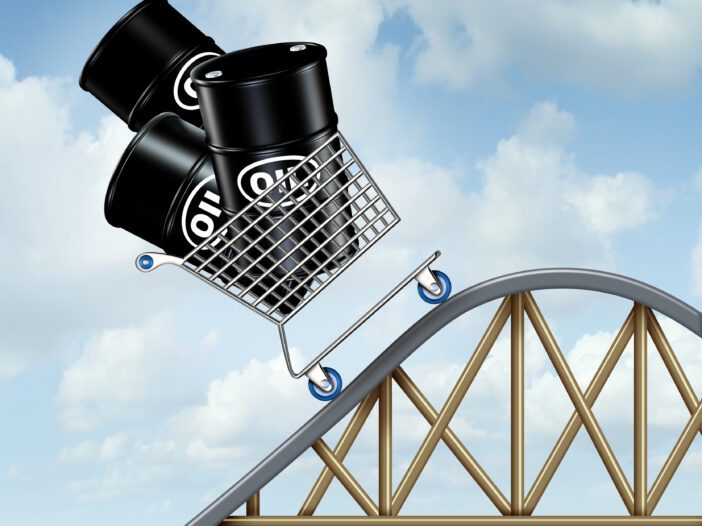Oil prices have just hit a fresh high for 2023.
Brent crude is now above US$90 per barrel, the first time it has reached this milestone since last November.
The driving catalyst is, of course, ongoing production cuts from the Saudis and Russia. OPEC’s stranglehold over the market continues to prove problematic.
That’s the whole point of a cartel, though.
And OPEC is one of, if not the most, pragmatic cartels in human history.
We can lay blame on them all we want, but at the end of the day, they are predictable. That’s why I believe the bigger issue lies beyond OPEC.
What we, as investors, should really be upset about is the fact that our politicians and corporate leaders have let this happen. I’ve spoken at length about the underinvestment and underappreciation of oil in 2023 and why it will come back to bite us.
You can check out my articles here and here if you want a refresher.
But let’s delve into how we can potentially prevent the next energy crisis before it begins…
Conflicting visions
The reality is, we need new oil and gas projects more than ever.
The problem is that funding and support for such projects are at an all-time low.
Just look at the recent mess going on with Fortescue [ASX:FMG]. Three executives, including the CEO and CFO, have walked away from the company without really saying why. All we can infer from off-handed comments from Andrew ‘Twiggy’ Forrest is that all three likely disagreed with his hydrogen vision.
In Forrest’s own words, they had a simple choice:
‘Get on the bus or get off the bus.’
Meaning the execs had to toe the line or find somewhere else to work. And they’ve chosen the latter.
I bring this up because I think it perfectly encapsulates the problem the energy industry has right now. Because as much as hydrogen will have a key role to play in our energy future, it isn’t the be all and end all.
Fossil fuels, love them or hate them, are still going to be vital for quite some time to come. But unless we start pumping money into new projects, we’re going to end up high and dry.
Fortunately, companies like Woodside are still doing their part. The company’s Trion deepwater venture in Mexico just got the green light from the regulator this week.
It brings Woodside one step closer to bringing roughly 478.7 million barrels of oil to the market. A reserve that will steadily come online from 2028 if all goes to plan.
One of the few glimmers of hope for those who see reason in a fossil fuel future.
Keeping the lights on
Now, why all of this matters is because energy matters.
Energy is the bedrock of our society; without it, we would be in ruin.
That’s why when prices go up, we all feel the pinch. But more dire than rising costs is the threat of energy running out…
Our world needs reliable and abundant fuel to keep on turning. Which is why many green energy solutions, while noble, aren’t quite ready to take up the mantle just yet.
They’re getting better every day, but they aren’t up to replacing fossil fuels entirely just yet. And it will directly impact all of us.
As my colleague, Brian Chu, recently explained to his readers:
‘Most of you just came out of an unusually cold winter and likely went through ‘bill shock’ as gas and electricity prices rose. Meanwhile, we faced the burden of the rising cost of living in almost every aspect.
‘Don’t blame it just on the rising interest rates. That’s just part of the problem.
‘My family lives in the Southern Highlands, NSW. It’s not quite ski country, but we get our fair share of near-zero temperatures at night. On a Saturday in early July at midnight, our street experienced a blackout when gale-force winds blew a tree branch onto the power lines.
‘Consider what would happen if Australia accelerates its pace of moving out of fossil fuels and into renewables such as solar and wind power. You wouldn’t need bad weather to cause blackouts. Our power grid wouldn’t be able to meet the demand from businesses and households.
‘And I’m not merely making a conjecture. South Africa has moved ahead of us in doing just that, and now it’s tackling sporadic blackouts and brownouts.’
We’re facing a huge energy dilemma. One that is only going to become more divisive and more costly the longer it goes on.
Which is why, as an investor, the best thing you can probably do is pick the right side. The side that has been providing reliable fuel for the better part of 150 years.
After all, the Saudis and Russia understand its worth. That’s why they’re cutting production to ensure they control the market.
For the remaining projects outside of their grasp, it means opportunity abounds.
Regards,
 |
Ryan Clarkson-Ledward,
Editor, Money Morning

